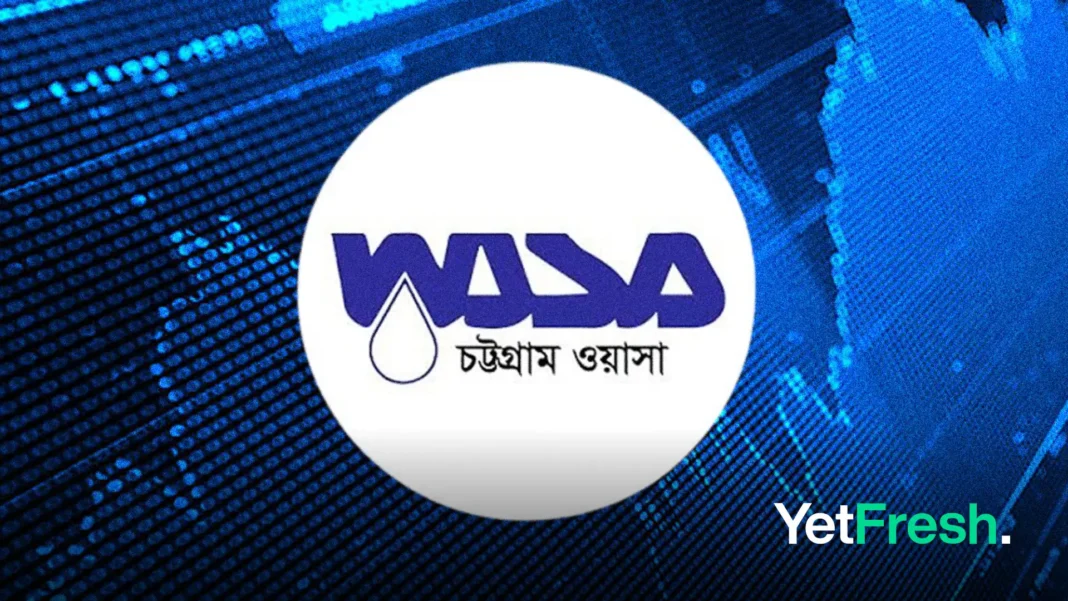TL;DR:
- Chattogram Wasa loses Tk 100 crore annually with 30% system loss, highest among Bangladesh’s water utilities
- Despite Tk 6,336 crore investment in infrastructure, water wastage continues to rise
- Consumers face irregular supply while being overbilled through minimum billing system
- 35-40% of port city still lacks access to Wasa’s water supply network
Chattogram Water Supply and Sewerage Authority (Wasa) is hemorrhaging an alarming Tk 100 crore annually due to systemic inefficiencies, marking a dramatic increase in water wastage over the past decade. The state-run utility’s system loss has doubled from 15.24% in 2013-14 to a staggering 30% in the last fiscal year, representing the highest loss rate among Bangladesh’s four water supply agencies.
In fiscal year 2023-24, Chattogram Wasa produced 176,511 million liters of water but lost revenue from 52,962 million liters, classified as Non-Revenue Water (NRW). With water tariffed at Tk 19.37 per 1,000 liters, this translates to over Tk 100 crore in lost potential revenue.
The situation has become particularly concerning as consumers face dual challenges. While many areas experience severe water shortages, residents are paradoxically being overcharged. “I get water once a week, but I still billed around Tk 600 every month under the minimum billing system,” reports Habib Ullah, a resident of the port city’s Cement Crossing area.
Despite investing Tk 6,336 crore in infrastructure improvements, including major pipeline replacement projects funded by JICA and the World Bank, the wastage continues to escalate. The utility’s chief engineer, Maksud Alam, acknowledges that while 5% of losses stem from pipeline leakages, a concerning 25% is attributed to other issues, primarily metering errors and illegal connections.
Consumer rights advocates argue that these inefficiencies unfairly burden customers. “System losses directly affect consumers. If these losses were reduced, Wasa would generate more revenue and wouldn’t need to hike prices,” states SM Nazer Hossain, vice president of Consumers Association of Bangladesh.
Currently, Chattogram Wasa supplies approximately 45 crore liters of water daily through a 1,300km pipeline network, yet 35-40% of the port city remains outside its service coverage. Experts attribute this persistent crisis to poor planning and implementation of infrastructure projects.




